Hoop earrings are timeless accessories, but they need regular care to stay clean, shiny, and safe for your skin. Neglecting them can lead to dullness, tarnish, and even skin irritation. Here's how you can maintain them based on their material:
- Gold and Rose Gold: Clean gently with warm soapy water, a soft cloth, and avoid harsh chemicals.
- Sterling Silver: Use a silver polishing cloth or the aluminium foil method to remove tarnish effectively.
- Stainless Steel: Soak in soapy water, clean with a soft cloth, and rinse thoroughly to prevent residue.
Key Tips:
- Store hoops in fabric-lined boxes or pouches to avoid scratches.
- Keep them away from chemicals like perfumes, lotions, and chlorine.
- Clean weekly to maintain their shine and prevent build-up.
Proper care ensures your earrings stay beautiful, safe to wear, and last for years. Follow these simple steps to keep your hoops in top condition.
Know Your Hoop Earring Materials
Understanding the material of your hoop earrings is key to keeping them in great condition. Each material has its own care needs, and using the wrong cleaning method could harm your favourite accessories. This guide focuses on gold, sterling silver, and stainless steel.
To figure out what your hoops are made of, start by checking for hallmarks or stamps. Use good lighting or a magnifier to spot markings like "925" or "STER" for sterling silver, and "10K", "14K", "18K", or "24K" for gold. If there are no visible stamps, try the magnet test with a strong magnet. Gold and silver won’t stick to magnets, while stainless steel is usually non-magnetic as well. If the magnet reacts, your earrings may contain steel, iron, or nickel. Once you've identified the material, you can follow the specific cleaning tips below.
Gold and Rose Gold
Gold hoops are elegant but delicate, so they need careful handling. Pure gold is soft and prone to scratches, which is why it’s often alloyed (e.g., 10K, 14K, 18K) to make it sturdier.
Rose gold, with its warm pink tone, gets its colour from copper in the alloy. Both gold and rose gold resist corrosion but can lose their shine from oils or dirt. The biggest challenge with gold hoops is avoiding scratches and maintaining their gleam. Harsh chemicals, abrasive surfaces, and even contact with other jewellery can cause damage, so treat them gently to keep them looking their best.
Sterling Silver
Sterling silver hoops are a popular choice for their bright finish and affordability. Pieces marked "925" indicate 92.5% pure silver mixed with other metals, usually copper, for added strength.
Over time, sterling silver tarnishes due to exposure to sulphur compounds, which form silver sulphide. Tarnishing is completely normal and doesn’t harm the silver itself, but it does dull the appearance. Factors like humidity, air pollution, and even individual skin chemistry can speed up the process. Despite this, sterling silver is hypoallergenic and nickel-free, making it ideal for sensitive ears. With the right cleaning techniques, you can easily restore its original shine.
Stainless Steel
Stainless steel hoops are known for their durability and low maintenance. The chromium in stainless steel creates an invisible layer that helps protect against rust and corrosion.
These hoops are perfect for daily wear, as they retain their colour and shine with minimal effort. They’re also hypoallergenic, making them a great option for those with sensitive skin. However, regular cleaning is still necessary to remove dirt, oils, and soap residue that can dull their finish. If exposed to chlorine or salt water, rinse them with fresh water to prevent potential discolouration or pitting. Thanks to its non-porous surface, stainless steel resists bacteria and allergens, adding another layer of practicality for everyday use.
How to Clean Your Hoop Earrings Step by Step
Now that you’ve identified the material of your hoops, it’s time to get them looking as good as new. Each type of metal needs its own approach, so follow these simple steps to keep your favourite hoops in top condition.
How to Clean Gold and Rose Gold Hoops
Gold and rose gold hoops can be cleaned gently with items you probably already have at home. You’ll need a small bowl, warm water, a few drops of mild washing-up liquid, a lint-free cloth, and a soft-bristled brush for intricate details.
Start by mixing warm water with a few drops of washing-up liquid in the bowl to create a mild soapy solution. Place your hoops in the solution and let them soak. For heavily soiled jewellery, leave them for 15–20 minutes; for routine cleaning, two minutes will suffice. This soak helps loosen dirt and oils without any scrubbing.
Once soaked, take the hoops out and, if needed, use the soft brush to gently clean any stubborn areas or detailed sections. Rinse thoroughly under warm running water to remove all soap residue - leftover soap can dull the finish.
Dry your hoops completely with a lint-free cloth, then polish them with a clean, dry cloth to restore their shine. This final step is what gives them that radiant sparkle.
A word of caution: Avoid using harsh substances like bleach, chlorine, acetone, ammonia, toothpaste, or abrasive cleaners on gold jewellery. These can cause irreversible damage to the alloy and ruin the finish.
Next, let’s tackle sterling silver hoops and their unique cleaning needs.
How to Clean Sterling Silver Hoops
Sterling silver hoops often develop tarnish, but don’t worry - it’s easy to restore their shine. For light tarnish, a silver polishing cloth works wonders. Gently rub the cloth over the surface to remove the tarnish and bring back the shine.
For more stubborn tarnish, try the aluminium foil method. Line a bowl with aluminium foil, shiny side up, and place your silver hoops inside. Sprinkle a tablespoon of bicarbonate of soda over them, then pour hot water into the bowl until the hoops are fully submerged. The tarnish will transfer to the foil through a chemical reaction.
Let the hoops sit in this solution for 5 to 10 minutes, depending on how tarnished they are. This method effectively reverses tarnishing without removing any silver, unlike polishing. Rinse the hoops thoroughly under warm water and dry them completely with a soft cloth.
Now, onto stainless steel hoops - the easiest of all to clean.
How to Clean Stainless Steel Hoops
Stainless steel hoops are low-maintenance but still need regular cleaning to keep them looking their best. To remove everyday grime, soap residue, and oils, fill a bowl with warm water and add a few drops of mild washing-up liquid.
Let your hoops soak briefly in the soapy water. Use a soft cloth to gently clean all areas, paying extra attention to hinges and textured sections. Since stainless steel is non-porous, bacteria and oils don’t penetrate the surface, making cleaning straightforward.
Rinse the hoops thoroughly under warm water and dry them completely. Drying is essential - air drying can leave water spots on stainless steel, which may require additional polishing to remove.
If your hoops have been in chlorinated or salt water, rinse them with fresh water as soon as possible to avoid any potential discolouration or pitting, even though stainless steel is highly resistant to corrosion.
With these methods, your hoops will stay clean, shiny, and ready to wear!
How to Prevent Tarnish and Damage
Keeping your hoop earrings in pristine condition doesn't have to be a challenge. With a little attention to storage, handling, and cleaning, you can preserve their beauty and avoid tarnish or damage.
How to Store Your Hoops Properly
Storage plays a crucial role in keeping your hoops free from tarnish, scratches, and tangles. Avoid leaving your earrings exposed to dust, moisture, or bacteria, as these can take a toll on their appearance over time.
The best option is to store them in a fabric-lined jewellery box, ensuring each pair has its own compartment or soft pouch. This prevents the metal surfaces from rubbing against each other and causing visible wear.
For those living in humid environments, moisture can speed up tarnishing. Monica Vinader, Founder, CEO and Fine Jeweller, offers this tip:
If you live somewhere humid, it's essential to place a small packet of desiccant crystals in the packaging to keep earrings from tarnishing.
These silica gel packets, which absorb moisture, are readily available at craft shops or online. Additionally, airtight containers are a great choice for long-term storage, as they shield your hoops from moisture and airborne chemicals that can lead to tarnish.
Clem Kirchmeir, Senior Piercer at Fat Fuga Collective, underscores the importance of a clean storage environment:
It's a no-no to take your earrings off and store them in a dirty area. Jewellery boxes were invented for a reason.
Choose a dry, clean spot for storage, away from bathrooms and kitchens where humidity and chemical exposure are higher.
Once your storage setup is sorted, the next step is protecting your hoops from harmful chemicals.
Keep Hoops Away from Chemicals
Daily activities can expose your hoops to substances that dull their shine or cause damage. Timing is everything - always make earrings the last thing you put on when getting ready.
Remove your hoops before showering, swimming, or exercising to protect them from chlorine, soap, and sweat. Chlorine in pool water is especially harsh, while soap can leave residue in intricate designs, dulling their finish. Even washing your hair can expose your earrings to sulphates and other chemicals.
Beauty products are another common culprit. Perfumes, hairsprays, lotions, and makeup often contain alcohol or other compounds that can lead to discolouration. Maria Tash, Founder of Maria Tash, advises:
Try not to spray hair products and make-up directly onto jewellery as they will make the pieces look dirty and not sparkle, and it also means more cleaning.
To minimise exposure, apply all beauty products first, then put on your hoops as the final step in your routine. This simple habit can save you time and effort in cleaning later.
When it comes to exercise, sweat combined with friction can speed up tarnishing, especially for sterling silver pieces. Before hitting the gym or going for a run, safely store your hoops in their designated spot.
Some hoops come with protective coatings, like rhodium plating on silver or e-coating on classic designs, which help guard against tarnishing and fading. However, even these coatings aren't immune to harsh chemicals, making proper care essential for keeping your earrings in top condition.
How to Fix Common Problems
Even with regular maintenance, hoop earrings can sometimes develop stubborn tarnish or grime that basic cleaning won’t remove. Luckily, there are effective ways to tackle these issues and restore your earrings to their original shine.
How to Remove Tarnish
When regular cleaning methods fall short, start by soaking your earrings in warm water mixed with a few drops of mild washing-up liquid. Let them sit for about 10–15 minutes - this loosens dirt and oils that may have built up over time.
After soaking, take a soft toothbrush and gently scrub the crevices, focusing on hinges and textured areas where grime tends to collect. For sterling silver hoops, create a paste by combining a small amount of baking soda with water. Use a soft cloth to apply the paste in circular motions, which helps lift tarnish without scratching the surface. Rinse thoroughly with clean water and dry completely using a soft towel.
Gold and rose gold hoops may require a slightly different approach. After an initial clean with mild soap and a toothbrush, apply 70% isopropyl alcohol to any stubborn areas using a cotton pad or bud. Always test on a small, hidden spot first to ensure the alcohol doesn’t damage the finish. Rinse well and dry thoroughly.
For particularly tough dirt on the front surfaces, lightly scrub with damp kitchen paper after soaking. To clean the backs and posts, use rubbing alcohol on a cotton bud, but again, test a discreet area first to avoid any unwanted reactions.
If your earrings feature decorative elements, it’s best to clean each component separately. This ensures every part is carefully attended to without risking damage to delicate or intricate details.
"Professionals will be able to assess how to clean each part of an earring and polish off any residue that just won't move."
– Monica Vinader, Founder, CEO and Fine Jeweller, Monica Vinader
For persistent grime, ultrasonic and steam cleaners can be helpful but should be used with great care. Avoid these methods for jewellery with opals, moonstones, turquoise, emeralds, pearls, or pavé-set stones, as well as pieces with foil backing behind the stones. By addressing tarnish and dirt promptly, you can keep your hoops looking stunning and ready to complement your style.
Keep Your Hoop Earrings Looking Great
Taking care of your hoop earrings doesn’t have to be complicated. A little regular attention can keep them shining and looking their best.
Here are a few simple tips to maintain their brilliance:
- Clean them weekly: Use warm water and a small amount of mild washing-up liquid to gently remove dirt and prevent tarnishing. For gold or rose gold hoops, this helps preserve their natural shine. If you’ve got sterling silver hoops, be sure to dry them straight away to avoid water spots.
- Store them carefully: Keep your hoops in fabric-lined boxes or individual pouches to prevent scratches. This extra step goes a long way in maintaining their appearance.
- Avoid exposure to chemicals: Take your hoops off before applying beauty products or heading for a swim. Chemicals can dull their finish over time.
If your hoops lose their sparkle or the clasps feel loose, it’s worth consulting a professional jeweller. Whether the issue is cosmetic or structural, expert care can restore their beauty and ensure they stay secure - especially if the earrings hold sentimental or monetary value.
Finally, remember that different materials require different care. For instance, what works well for stainless steel could harm sterling silver. Always check the specific material of your earrings and choose your cleaning method accordingly. A tailored approach will help keep your hoops elegant for years to come.
FAQs
How can I find out what material my hoop earrings are made from if there are no visible hallmarks?
If your hoop earrings don’t have any visible hallmarks, you can still figure out what they’re made of with a few straightforward steps. Start by examining their weight and shine - gold and silver typically feel heavier and have a distinctive gleam compared to stainless steel or plated metals. If you’re uncertain, visiting a jeweller for a professional assessment is a reliable option.
For a quick DIY check, try the magnet test: real gold and silver aren’t magnetic. If your earrings are drawn to a magnet, they likely contain other metals. Just remember, these at-home methods aren’t always definitive, so seeking expert advice is the best way to get accurate results.
How should I store my hoop earrings to avoid tarnishing or damage?
To keep your hoop earrings looking their best, proper storage is key. Use soft pouches or separate compartments to prevent them from rubbing against each other, which can lead to scratches. A jewellery box with lined sections is a great option for keeping them organised and protected.
If you’re in a humid environment, adding a small packet of silica gel or anti-tarnish strips to your storage box can help by absorbing moisture and reducing the chance of tarnishing. Always ensure your earrings are clean and completely dry before storing them - this simple step helps maintain their shine and ensures they last longer.
Is it safe to use ultrasonic or steam cleaners on all types of hoop earrings?
Not all hoop earrings are suitable for ultrasonic or steam cleaning, as these methods can be too harsh for certain materials or intricate designs. For instance, ultrasonic cleaners can harm earrings featuring gemstones, enamel, or fine details, while steam cleaners may affect glue-set stones or softer metals.
To prevent damage, always refer to the care instructions for your earrings' specific material. For plain gold, silver, or stainless steel hoops without any embellishments, these methods might work, but if you're unsure, it's wise to consult a professional jeweller. When in doubt, stick to gentler cleaning techniques like using warm soapy water and a soft cloth.
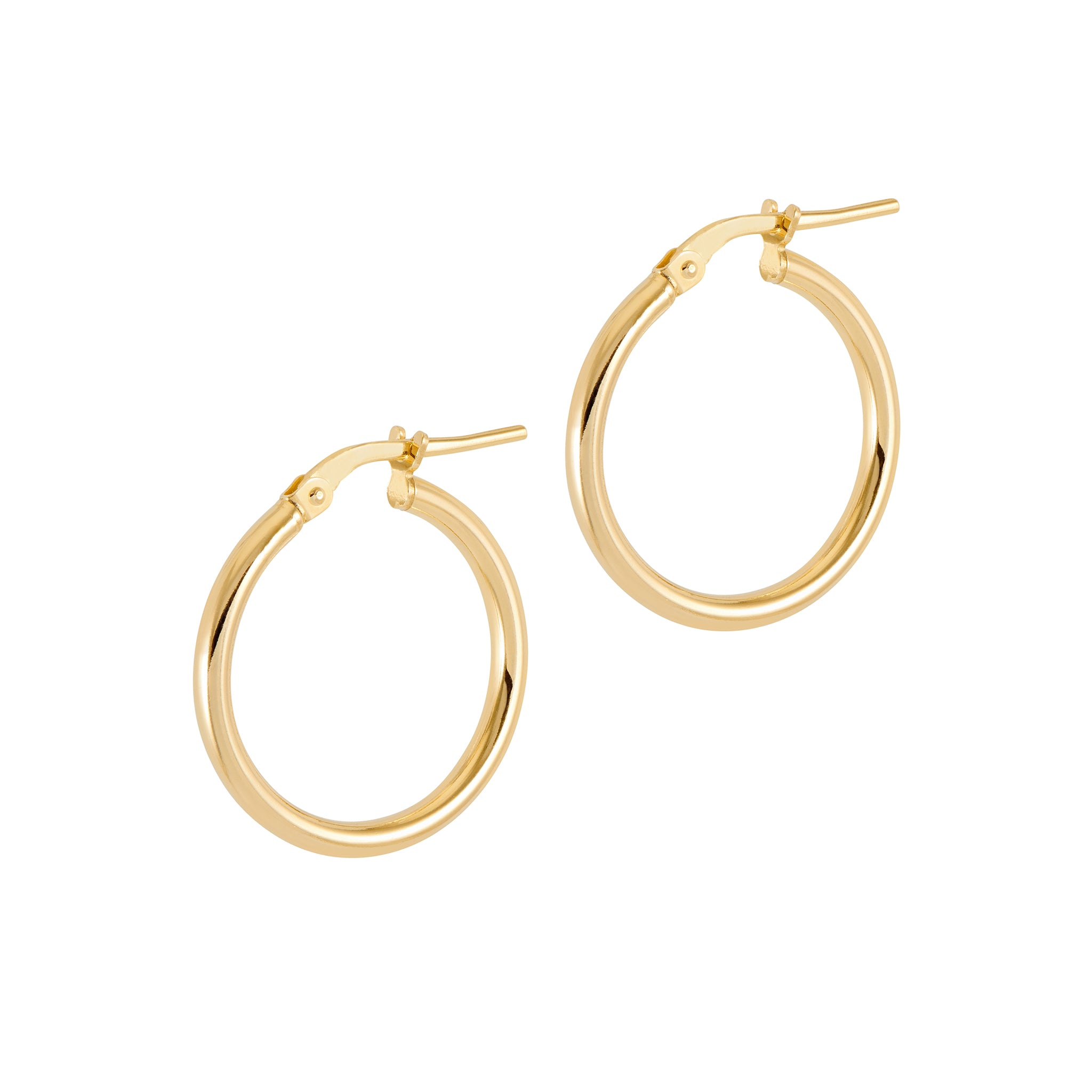
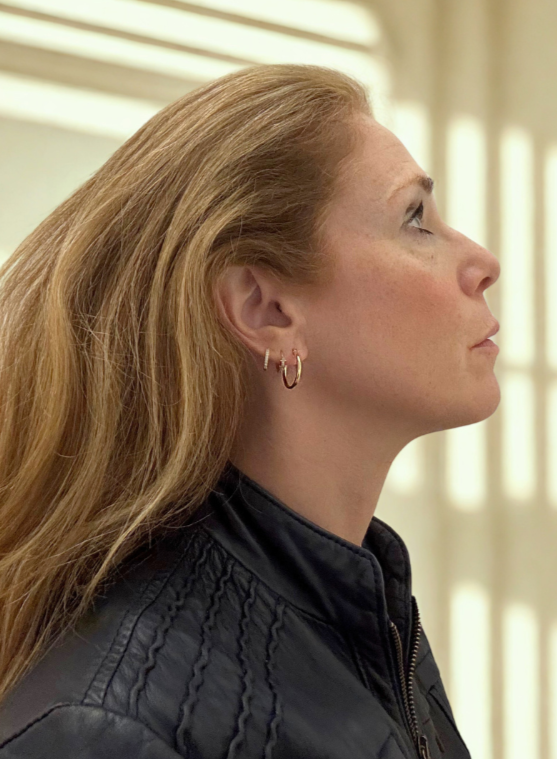
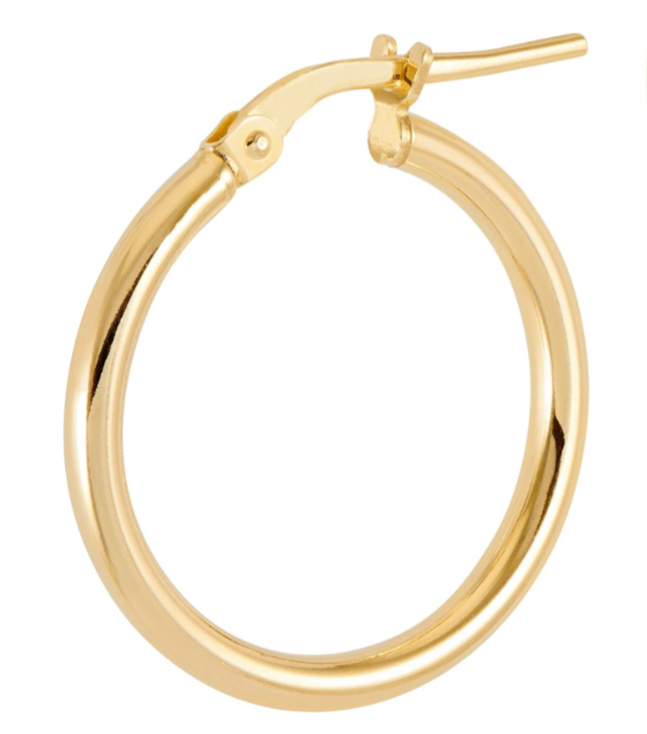
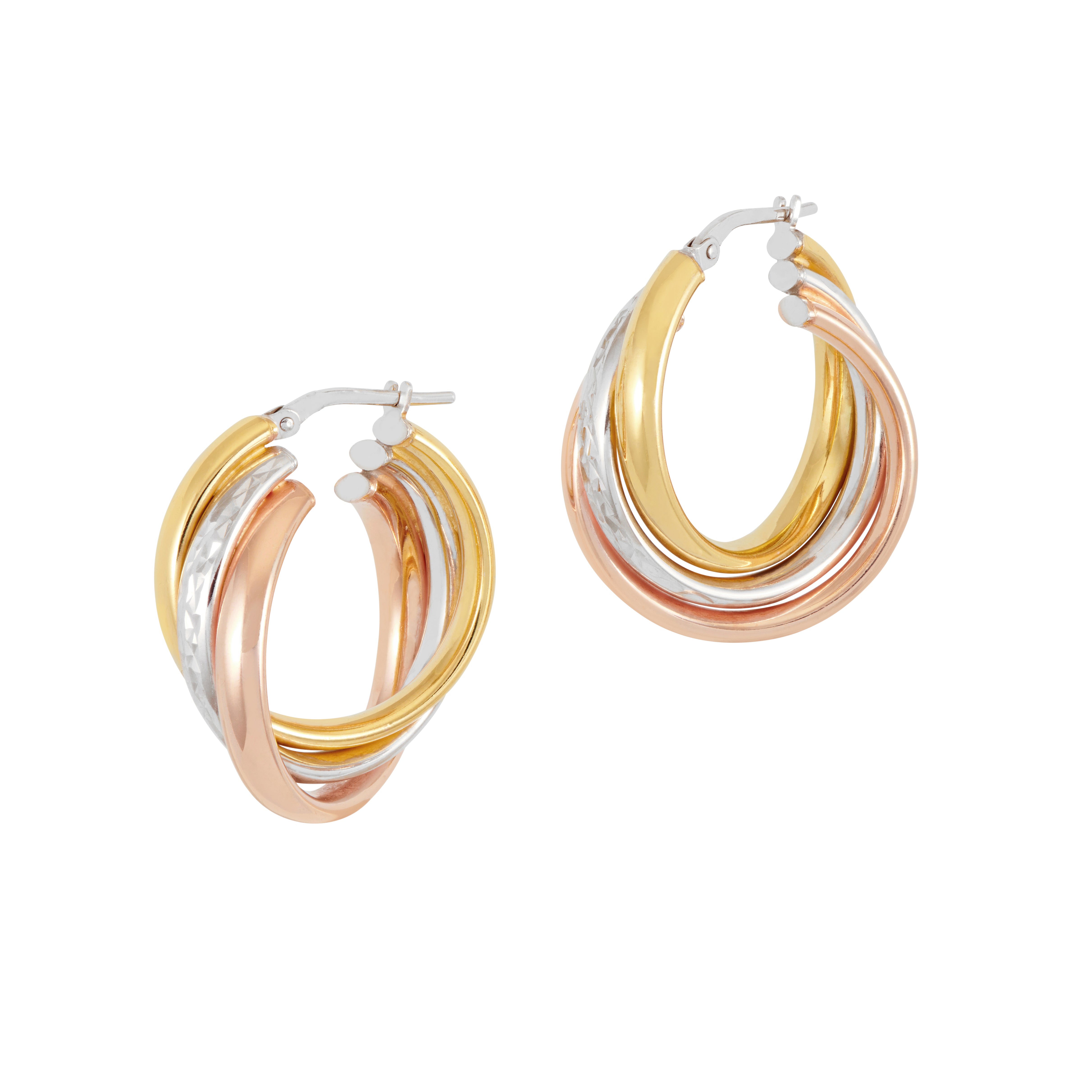
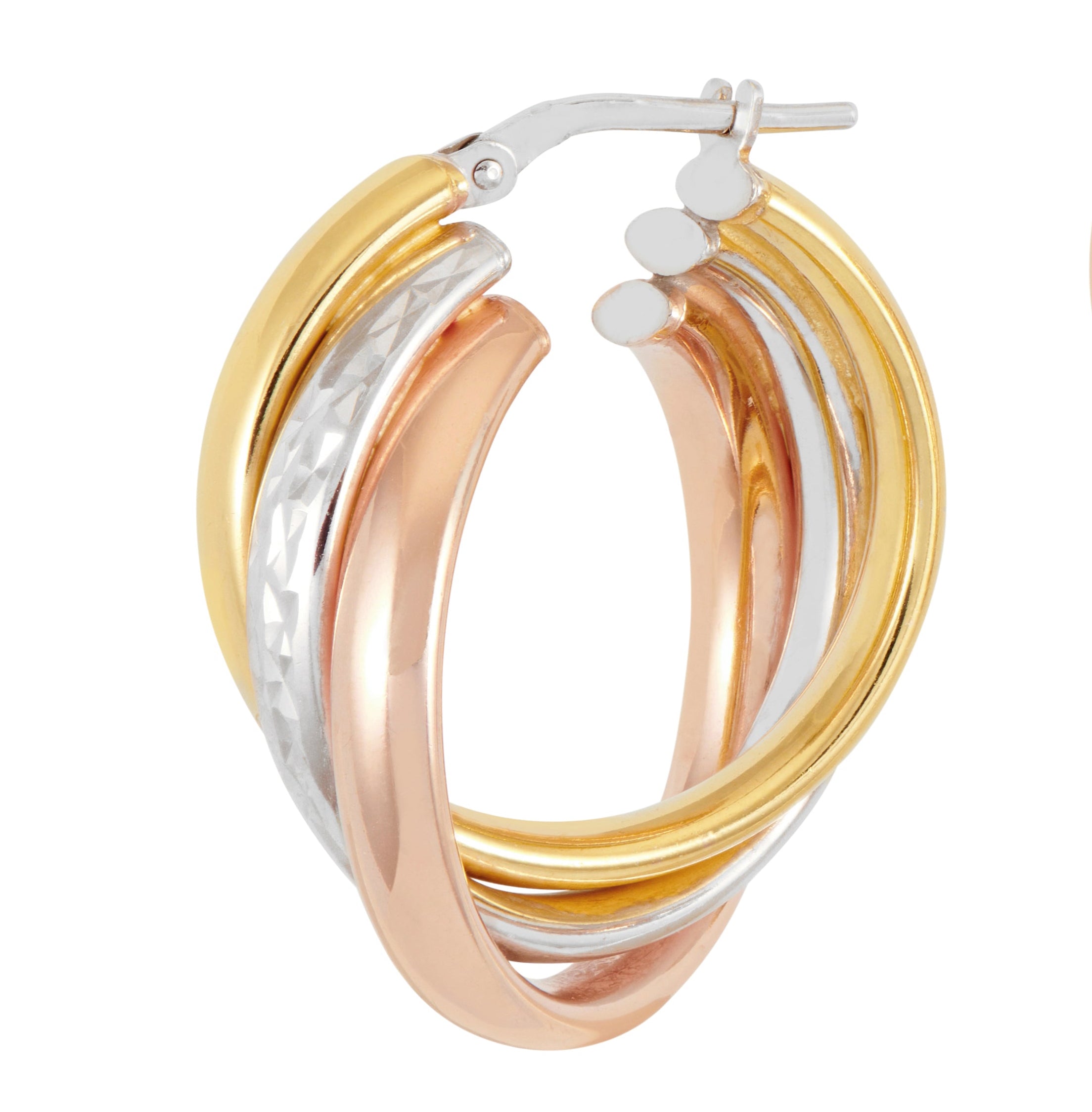
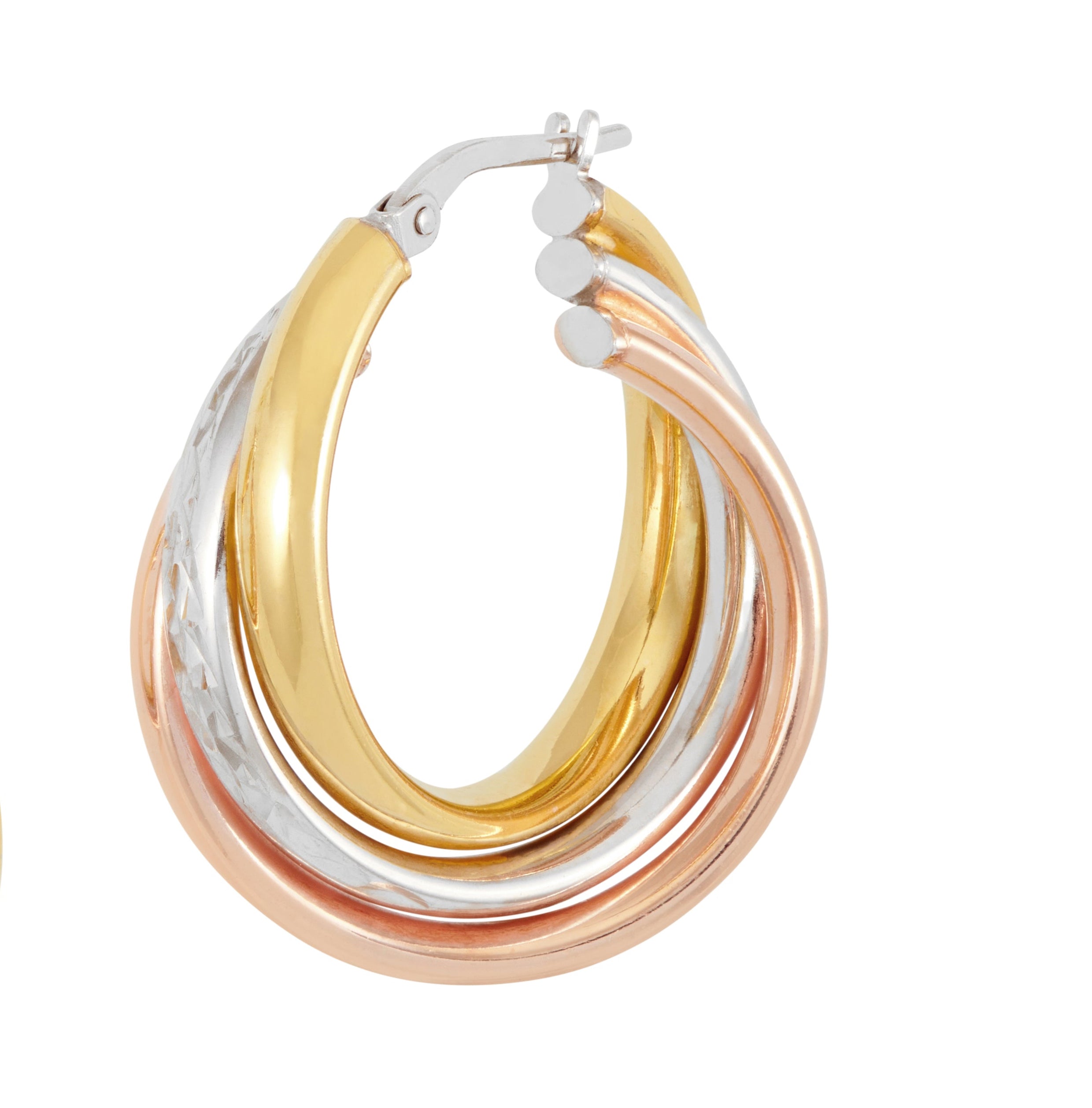
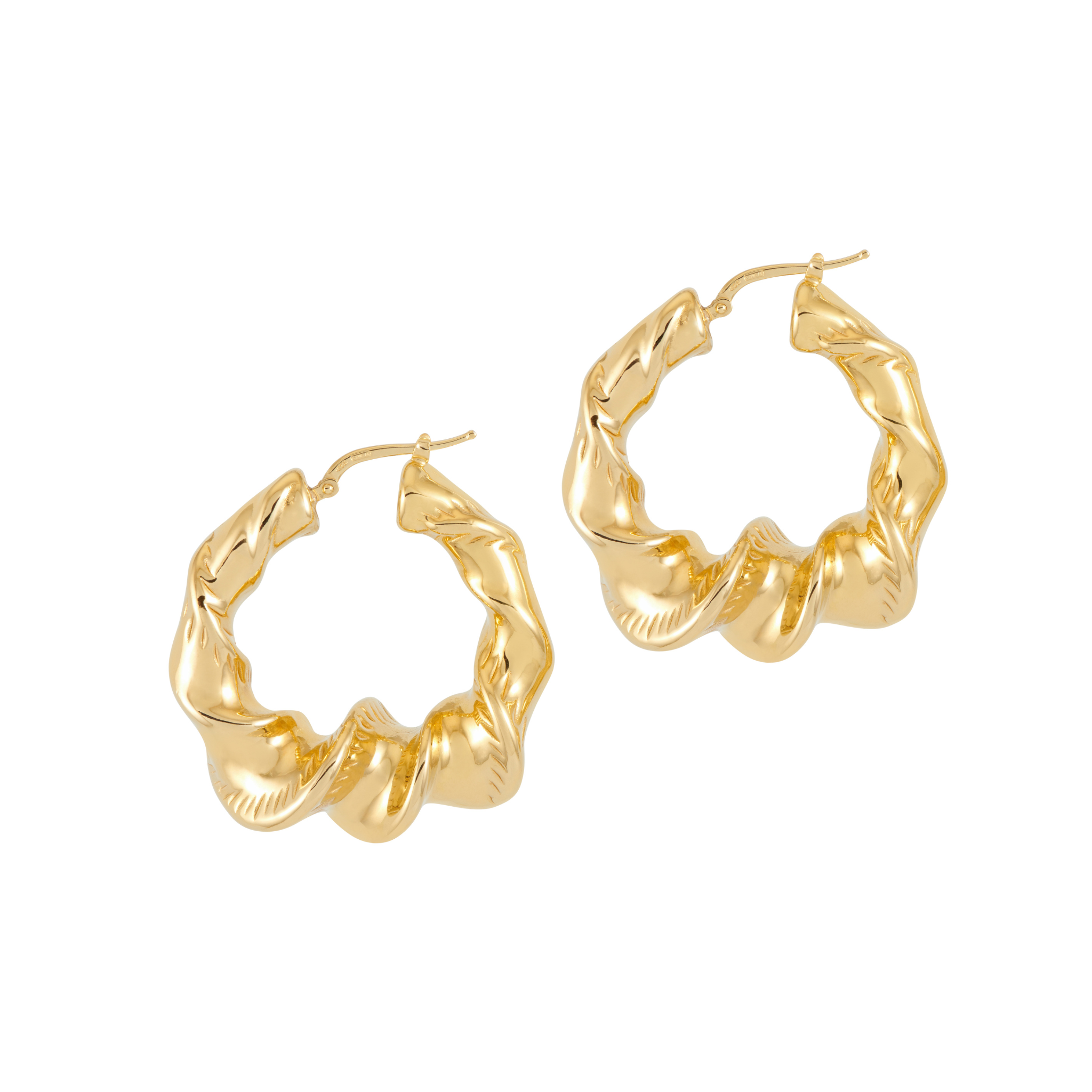
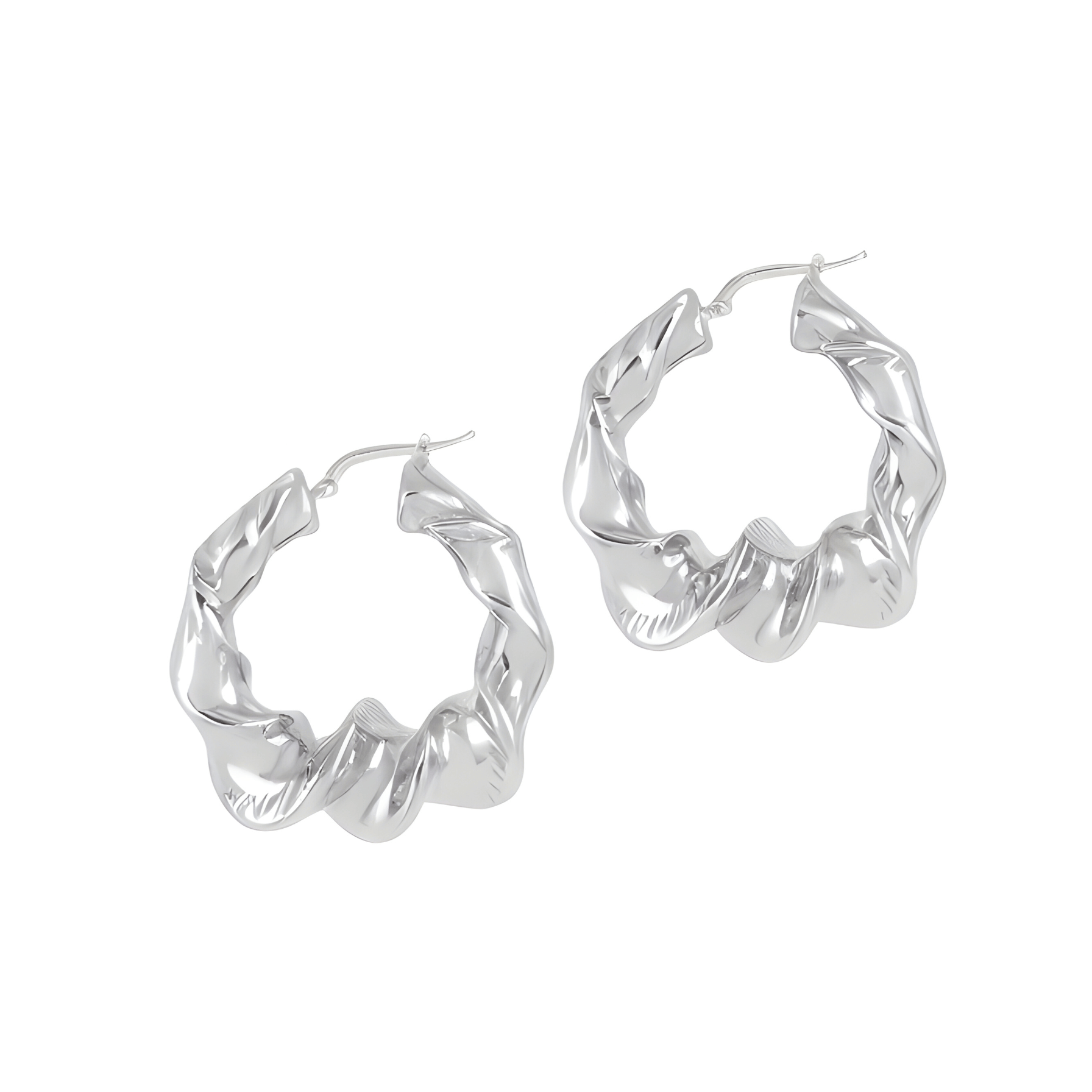
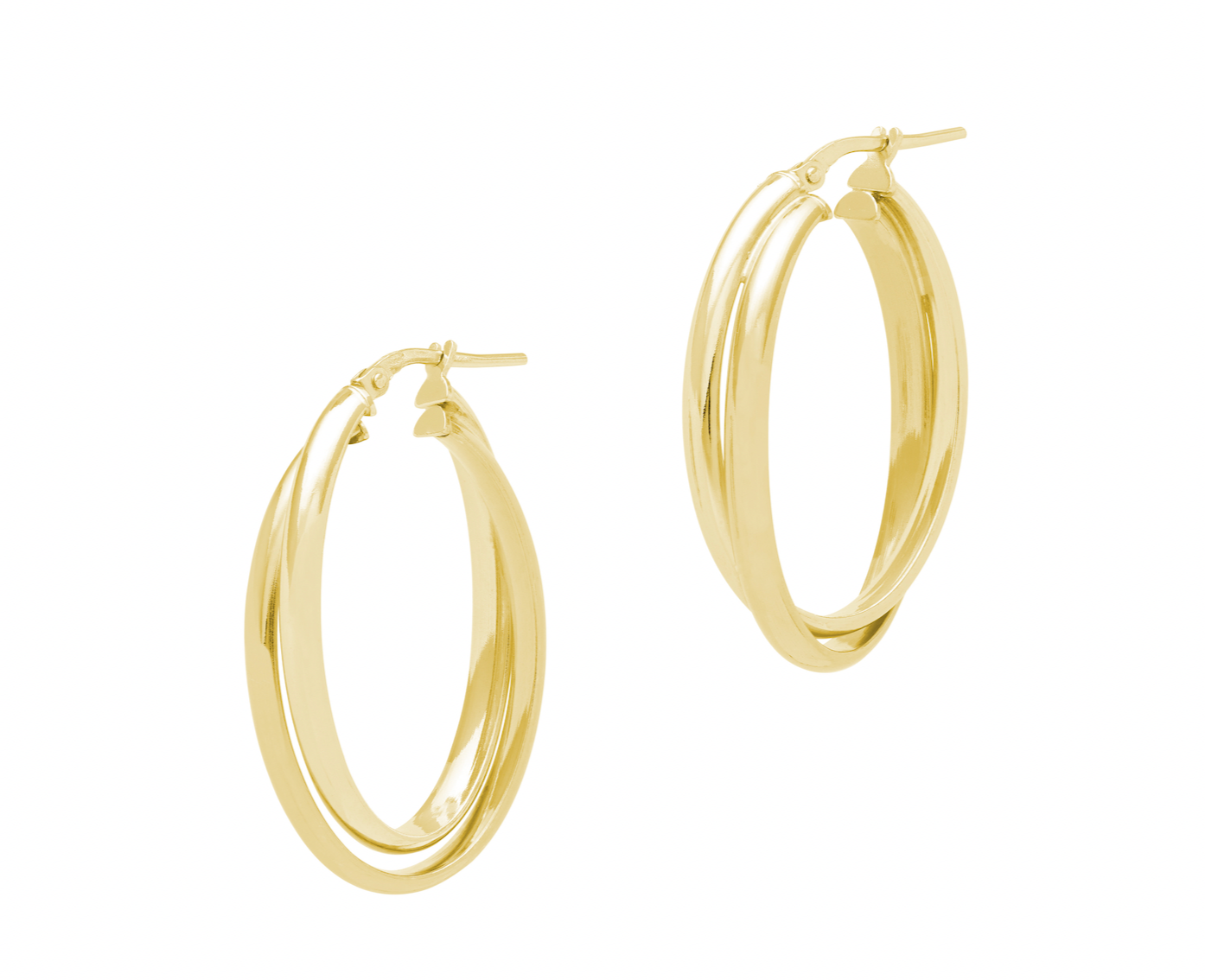

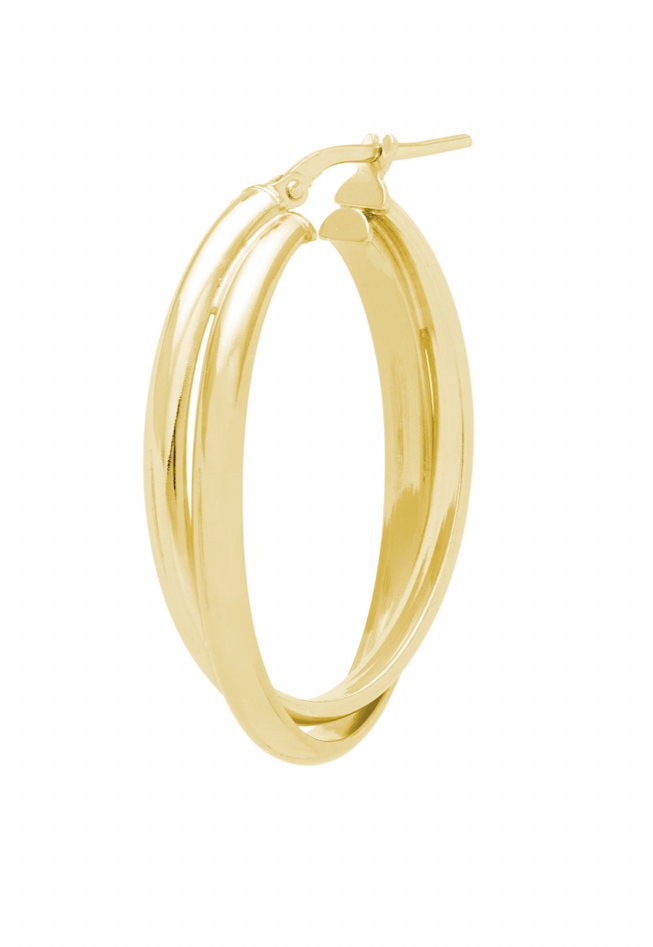
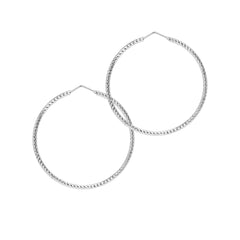

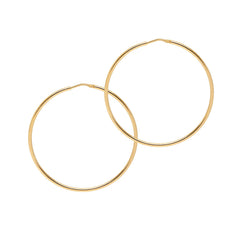
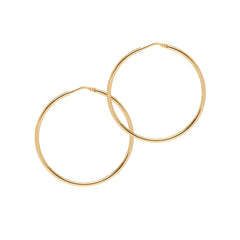

Leave a comment